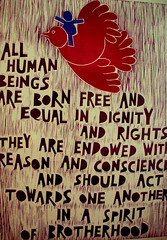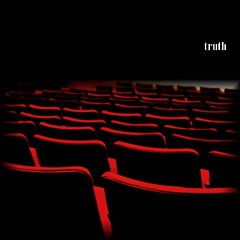Human rights report critiques blog censorship
 There has been much said this week about the recent American report on human rights in Fiji. From the perspective of a Fiji blogger, it is interesting to see that blogs are explicitly mentioned several times in the report. Here are the relevant sections:
There has been much said this week about the recent American report on human rights in Fiji. From the perspective of a Fiji blogger, it is interesting to see that blogs are explicitly mentioned several times in the report. Here are the relevant sections:
Internet Freedom
There were no government restrictions on general public access to the Internet. However, the military attempted to censor or shut down a number of antigovernment blogs that appeared after the coup, and the Public Service Commission warned civil servants against accessing or taking part in antigovernment Web sites. The military extensively monitored Internet chat rooms on these Web sites. In May the RFMF announced that it was following three individuals alleged to be involved with antigovernment blogs. Also in May, a businessman accused by the military of involvement with such a blog was detained by RFMF personnel at an army camp, where he was verbally and physically abused. Several other individuals suspected of maintaining blogs or posting on blogs were threatened or intimidated. Two senior civil servants accused of contributing to a blog were suspended from duty and subjected to disciplinary action. At least two persons were arrested for allegedly authoring or forwarding e-mail messages critical of the interim government.The Internet was widely available and used in and around urban centers, and the majority of the population lived in areas with
Internet coverage. However, low-income persons generally could not afford individual service, and other public access was very limited. Access outside urban areas was minimal or nonexistent.
Academic Freedom and Cultural Events
Academic freedom was generally respected; however, government work‑permit stipulations prohibit foreigners from participating in domestic politics. University of the South Pacific contract regulations effectively restrict most university employees from running for or holding public office or holding an official position with any political party. RFMF agents reportedly infiltrated the university campus to monitor any political activity. The RFMF also threatened to terminate scholarships from the Fijian Affairs Board, a government-funded statutory body, for university students who contributed to antigovernment blogs.
[Fiji. Country reports on human rights practices. US Department of State. March 11, 2007]
Most of this seems to refer to well known events from the first half of 2007. Readers, what do you think?
- Is this report acurate?
- Is it still unsafe to blog in Fiji?
- Does the US really have the right to criticize the human rights practices of other countries?
- Would anyone from the interim government like to comment on this section of the report?
Photo by: riacale
Blogged with Flock









